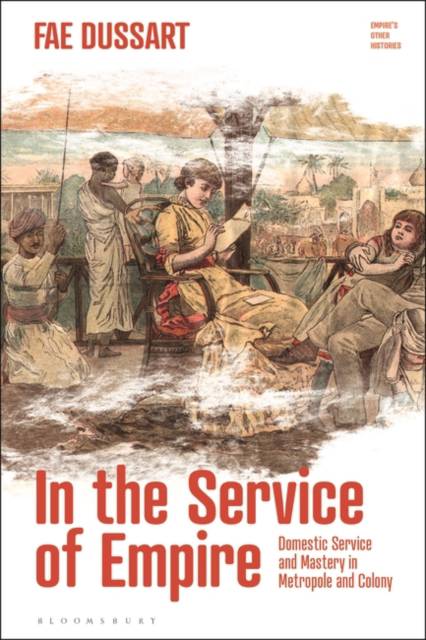
- Afhalen na 1 uur in een winkel met voorraad
- In januari gratis thuislevering in België
- Ruim aanbod met 7 miljoen producten
- Afhalen na 1 uur in een winkel met voorraad
- In januari gratis thuislevering in België
- Ruim aanbod met 7 miljoen producten
Omschrijving
Despite recent research, the 19th-century history of domestic service in empire and its wider implications is underexplored. This book sheds new light on servants and their masters in the British Empire, and in doing so offers new discourses on the colonial home, imperial society identities and colonial culture. Using a wide range of source material, from private papers to newspaper articles, official papers and court records, Dussart explores the strategic nature of the relationship, the connection between imperialism, domesticity and a master/servant paradigm that was deployed in different ways by varied actors often neglected in the historical record.
Positioned outside the family but inside the private place of the home, 'the domestic servant' was often the foil against which 19th-century contemporaries worked out class, race and gender identities across metropole and colony, creating those places in the process. The role of domestic servants in empire thus lay not only in the labour they undertook, but also in the way the servant-master relationship constituted ground that helped other power relations to be imagined and contested. Dussart explores the domestic service relationship in 19th-century Britain and India, considering how ideas about servants and their masters and/or mistresses spanned imperial space, and shaped peoples and places within it.Specificaties
Betrokkenen
- Auteur(s):
- Uitgeverij:
Inhoud
- Aantal bladzijden:
- 256
- Taal:
- Engels
- Reeks:
Eigenschappen
- Productcode (EAN):
- 9781350242609
- Verschijningsdatum:
- 24/08/2023
- Uitvoering:
- Paperback
- Formaat:
- Trade paperback (VS)
- Afmetingen:
- 156 mm x 234 mm
- Gewicht:
- 358 g

Alleen bij Standaard Boekhandel
Beoordelingen
We publiceren alleen reviews die voldoen aan de voorwaarden voor reviews. Bekijk onze voorwaarden voor reviews.









